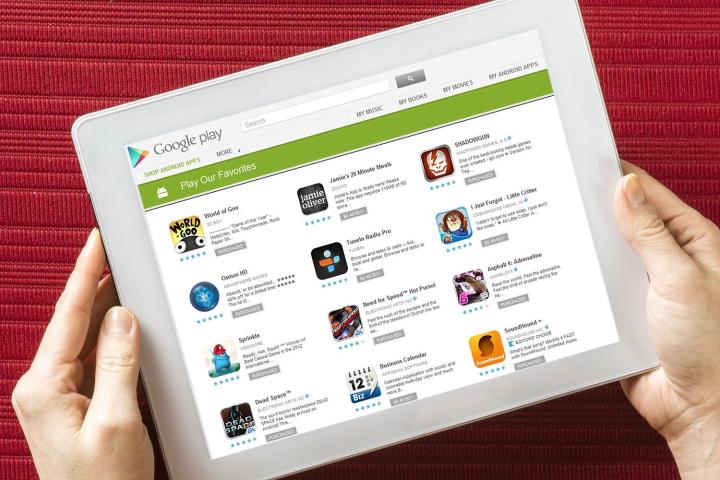

Developers now have a far greater degree of control over the appearance of catalogs, the pages that show all the apps they’ve published to the Play Store. They can now embellish them with banner graphics, icons that represent their brand, and/or featured apps. Google says its working on bringing catalog pages to the forefront in a future Play Store update.
Updated by Kyle Wiggers 02-05-2015: Added information about catalog customization.
But what’s A/B testing, you ask? A very reasonable question. Also known as split testing in some circles, it’s often employed as a Web development tool to determine which of two pages performs better: You show one version to a set of visitors, another version to a similar visitors, and see which results in superior traffic. A/B testing is a bit different in the context of mobile apps, but the principle is the same: Developers create multiple unique, independent app listings and see which one manages to accrue more downloads or purchases.
Google will offer a fair degree of A/B customizability when it goes live in the Play Store. App makers will be able to create listings with alternate descriptions, icons, images, videos, and even pricing. The feature’s use, at least at launch, will seemingly be limited to the simplest forms of optimization — i.e., funneling random groups of users to distinct pages. Given the potential analytics goldmine, though, Google will undoubtedly expand A/B testing capabilities in the future.
A/B testing isn’t an end-all solution for Android’s app profitability woes — according to DAU-UP, a gaming marketing company, average revenue per user is far lower on Android than iOS — but it could help incentivize equal or Android-first release strategies. Kongregate saw conversion rates by up to 50 percent, and sources claim Apple currently has no answer to Google’s system in the works.


